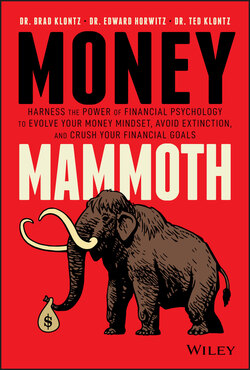Читать книгу Money Mammoth - Ted Klontz - Страница 42
THE COLLEGE ADMISSIONS SCANDAL
ОглавлениеIn 2019, over 50 people were charged in a multimillion-dollar scheme revolving around William “Rick” Singer, a college admissions consultant.2 It was alleged that, for a fee, Rick would help your child get admitted into a prestigious university. Reportedly, Rick had a network of people inside many of these universities, including one or more college athletic coaches and admissions administrators who could help facilitate the admissions either directly or indirectly. The network also involved admissions exam proctors, who in some cases changed students' answers to increase their scores.
His services allegedly also arranged for creating fake academic and athletic student profiles of participation to help gain admissions, sometimes working directly with athletic coaches and officials inside the universities. Of course, cooperation and help with admissions came at a price, depending on the university desired and how much help was needed.
There were several celebrity cases that were heavily featured surrounding this scandal. For example, actress Lori Loughlin and her fashion designer husband Mossimo Giannulli allegedly paid over $500,000 to Rick so that their two children could gain admission to University of Southern California (USC) as student-athlete rowers, even though neither were rowing athletes.
In another case, actress Felicity Huffman paid $15,000, disguised as a charitable donation, to increase her daughter's SAT scores post-exam. There were other stories like these reported, where there were bribes, corruption within the admissions system, and test-taking integrity was compromised. To date, none of the students were charged, as their parents were seen as the “principal actors” in these cases.
After sentencing, Huffman confessed, “I am deeply sorry to the students, parents, and colleges impacted by my actions. I am sorry to my daughters and my husband. I have betrayed them all.” Huffman said her daughter asked why she didn't believe in her. “I had no answer,” Huffman said. “I can only say I'm so sorry. I was frightened, I was stupid, and I was so wrong. I am deeply ashamed of what I have done. I have done more damage than I could ever imagine. I realize now with my mothering that love and truth go hand in hand. I take full responsibility for my actions.”3
Many were quick to pile on and condemn the actions of Huffman and others who were clearly trying to game the system to give their children an advantage. After all, isn't it totally unfair and outrageous? Not only is it cheating, it also seems to be the worst kind, where wealthy people use their advantage to elevate their children at the expense of people who couldn't afford to hire college admission consultants—let alone one who had the ability to game the system. This feeds into the worst stereotypes of the wealthy and famous.
However, ask yourself this question: If you were able to help your child get into an “elite” university, would you do it? Set aside the cheating aspect for a moment. If you had the money to do it, would you hire tutors and/or a college admissions consultant if you thought it would help your child have a better life?
It's easy to say that you wouldn't go to the extent that Huffman and others went. If she could go back in time, she would almost certainly make a different choice too. But what if a consultant told you that's what all the other wealthy people are doing? What if he sold you on the idea that the other children your child was competing with were also receiving similar advantages, and if you didn't do the same, you would be hurting your child's chances at a better future.
Parents will go to dramatic lengths to provide a better, happier, and safer life for their children. Many would sacrifice their lives for their children, not to mention their time and money. If it seemed like there was no other way, many of us would be tempted to become involved in questionable or even illegal acts if we felt it would give our children a leg up in life. Many of us might be tempted even if it involved illegal acts. Put aside these more dramatic stories for a moment and consider the impact that too much family support can have on the development of a child. What happens when parents go too far?
